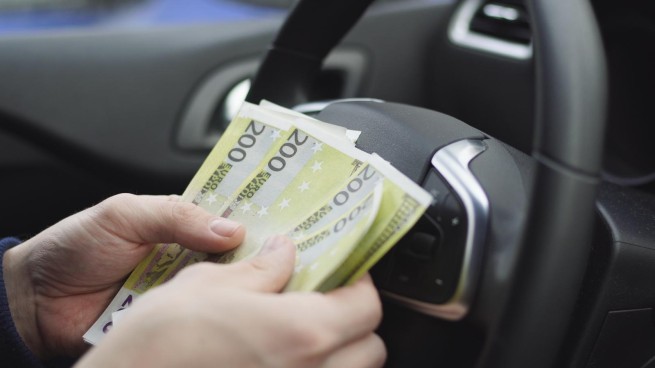Carrying cash in a car can be a hassle, especially if it is large amounts.
In recent years, the use of cash has declined significantly in the Western world, which also applies to Greece, which is following a trend in which plastic money has largely replaced cash.
According to the relevant law in force in Greece, the limit for cash transactions is 500 euros, and any other transaction exceeding this must be carried out electronically. The restrictions were introduced to combat money laundering (black cash) and, among other things, to block sources of terrorist financing.
In the event of an inspection, if a very large amount of money is found in the car, the owner of the vehicle or money may be required to explain and prove to the authorities that this amount is in his possession legally.
In addition, there are restrictions on the availability of banknotes, which drivers who frequently travel around EU, can be exported outside the country. That is, if the driver crosses the border into or out of Greece and is in possession of 10,000 euros or more, he must declare the amount to the customs authorities. This also applies to any other financial or monetary instrument that can be transferred anonymously from one person to another.
Carrying cash from Greece abroad by car is allowed up to €2,300 per individual per trip.
When, If the amount you have on you exceeds 10,000 euros and you do not declare it, there is a possibility that the customs authorities will seize the money and impose sanctions, which are different for each country.
The “freezing amount” can last up to 3 months, in accordance with anti-money laundering regulations. In addition, the customs code provides imposing a fine of 25% of the undeclared amount.
A typical example is a French driver who tried to cross the country’s border in his car, carrying 20,000 euros. The Frenchman did not declare the amount, and during an inspection carried out by customs authorities, the money was confiscated because the driver could not prove that it legally belonged to him. He finally succeeded, two years after a lengthy legal battle.







More Stories
Why cats don't go to your hands and don't like to be petted
When does old age begin? The answer to this question changes with age.
Association of Professional Nutritionists to be created in Greece